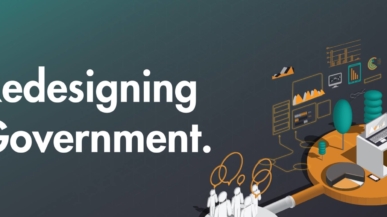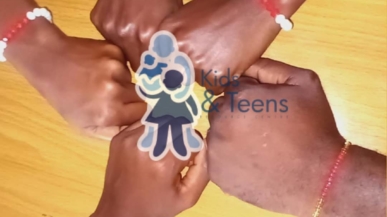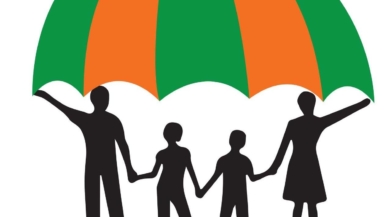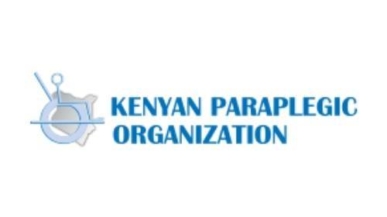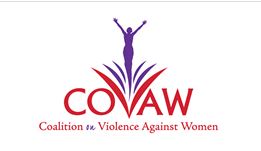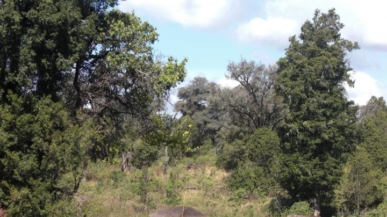Call for proposal
From Open to Inclusive Governance: Global Innovate and Learn Grant-V-1885-XG-IL
-
Grant amount
5,000-200,000 EuroProject Duration
24 MonthsClosing date
14 Feb 2020 -
-
-
Grants


Fighting for better access to public services? Ensuring that data concerning your group is either included or excluded? Protecting your community’s rights to land and resources? Searching for ways to bring your voice into decision–making?
This Call for Ideas may be a path to increased support to move closer from an open to more inclusive governance. Voice and its partners are looking to support those excluded to take advantage of more than a decade of transparency, accountability and participation practice and research. This is a chance to test and adapt tools and approaches in support of better outcomes for groups too often excluded from decision–making around the use of public resources. Submit your idea under this exciting starting fund totalling Euro 1 million for projects in 6 countries in East and West Africa.
About Voice and partners
Voice is a grant facility based on the principles to Leave No One Behind and Nothing About Us Without Us. Voice supports projects that challenge inequality and exclusion by strengthening the political power of those currently ignored and unheard, those who remain ignored by public opinion and power-holders, and whose needs are being discussed without them at the table. Specifically, we mean the millions of people whose identity or context leaves them economically, socially, and politically marginalised – they don’t have equal access to information, power, and influence. In order to contribute to making that drama reality, Voice was brought to life to tackle exclusion holistically, by focusing on 3 main impact areas:
- Improving access to (productive) resources (finance, land, and water) and employment.
- Improving access to social services, health, and education in particular.
- Promoting the creation of more open and inclusive spaces for political participation and citizen engagement.
Voice is an initiative of the Ministry of Foreign Affairs of the Kingdom of The Netherlands and managed by a consortium between Hivos and Oxfam Novib.
This initiative is supported by funding from the government of the Netherlands and the William and Flora Hewlett Foundation. In addition, the design phase will be actively supported by the Even it Up! programme within Oxfam Novib and the Freedom & Accountability team within Hivos as well as the Transparency and Accountability Initiative (TAI) – a collaborative of leading funders of transparency, accountability, and participation worldwide.
The Challenges
Transparency, accountability, good governance, evidence-based decision-making, open government, open data – these are part of an established vocabulary in the world of international development cooperation. If you can get past the jargon, what these words have in common is that they all refer to enabling people to assert their civic rights and making governments more responsive to the needs of those who they ought to serve. Or in other words: putting citizens (back) at the very centre of decision making, ensuring adequate checks that resources are being used for the public good, and to make public services fully accessible for everyone. There has been significant progress in the past decade in opening up information and processes around government management of public resources, although not consistent to all geographies, sectors, and societal groups. A growing transparency and accountability community has learned important lessons on improving the effectiveness of transparency and accountability efforts in support of better development outcomes.
And yet, to date, marginalised and discriminated groups have not been sufficiently and directly engaged in the design or use of transparency, participation and accountability tools/processes. Those civil society groups championing these approaches (and their government counterparts) are not well integrated with those groups representing more marginalised communities. We argue that it is a missed opportunity to stand with those who have been traditionally marginalised to advance their interests and demand accountability from governments. At the same time, a failure to adequately engage the voices of marginalised groups in fiscal and open governance debates (and practices) undermines their relevance and utility.
The key goals of this initiative is to bridge the gaps between social movements, activists, and civil society organisations (CSOs) and the highly specialised professional working in the field of Transparency, Accountability, and Participation (TAP) to push for very concrete improvements on inclusion, namely access to public service delivery and political participation in public issues.
Bridging approaches
In our commitment to reduce inequality and celebrate inclusion, TAI, Oxfam Novib, Hivos and Voice will pool our learning and resources. This joint global Call for Ideas seeks to support projects that will test ways to harness the power of transparency and reinforce accountability to overcome social and political exclusion affecting Voice rightsholder groups. Groups are invited to submit ideas that leverage transparency and accountability approaches and tools in support of progress on any one of the Voice main impact areas (increasing access to resources, access to services and avenues for participation) or a combination of them. There are many different options at local and/or national level that you might wish to pursue, but here are some guiding questions, simply for inspiration:
- Are tax policies, and resulting burdens, unfairly skewed against marginalised and discriminated groups? Is there adequate awareness and access to information on tax burdens? Are there advocacy opportunities to partner with existing tax networks?
- Similarly, are public spending decisions (as reflected in budgets and contracting) adequately recognising the needs of those communities currently facing marginalisation and discrimination? Are there opportunities to test new means to bring too often marginalised voices to influence such spending processes?
- Are there ways to support public officials to become more sensitive and responsive to the special needs of marginalised and discriminated groups, not least through safeguards in participation mechanisms (e.g. elections, town halls, public consultations, censuses, etc.) when making decisions? How can they make sure public services are being delivered in inclusive and accessible ways that cater to the needs of the citizens being left behind due to social exclusion?
- How can marginalised groups become more visible in public (such as official censuses, statistics, reports, among others) and privately collected data (either by civil society and/or private sector initiatives)? How can we ensure that such improved counting takes safety first, improving representation without worsening discrimination?
- How do communities access the data they need to assert their rights? If it is, how is that information being analysed and utilised in support of more inclusive access? What ways of partnering work best for marginalised and discriminated groups when using information in order to advance their causes? How can data or technology specialists become better allies to support their agendas?
This grant is to support groups representing marginalised and discriminated communities to advance their interests along Voice’s three general impact themes listed above, but doing so by harnessing the powerful networks, expertise, tools, and approaches offered by TAP groups. Hence, we believe that these collaborations have the potential to not only increase the impact of the work of both sectors (those dedicated to the work on social inclusion, and those specialists in the TAP world), but to nurture solidarity and mutual learning from exchanging their respective specialised knowledge, experiences, and skills.
What are we looking for?
This Call for Ideas is intended for civil society organisations, social enterprises, and networks (or consortia of these) to test and learn from new or existing approaches with Transparency, Accountability, and Participation (TAP). Partnerships and alliances are encouraged between public and private institutions, including social enterprises. Please keep in mind that a government institution can be an ally but not be a co-implementing partner receiving funding directly from Voice.
Voice will prioritise collaborations among organisations led by or representing marginalised communities and those bringing transparency and accountability expertise. We will have a preference for projects that are truly committed to putting communities in the lead while encouraging TAP related groups to be co-pilots!
Priority is given to applications led by organisations that represent or work on, for, and/or with the following rightsholder groups:
- Lesbian, Gay, Bisexual, Trans and/or Intersex (LGBTI+) people
- Age–discriminated vulnerable groups, notably the youth and the elderly
- Women facing exploitation, abuse and/or violence
- Indigenous peoples and/or ethnic minorities
- People with disabilities
Intersectionality is at the very heart of Voice. Therefore, we have a strong preference for selecting projects that intend to work with more than one of the Voice rightsholder groups to address overlapping or cross-cutting challenges and promote inter- and/or intra-group solidarity.
In terms of geographical focus, projects are expected to be implemented in (and managed from) at least one Voice focus country in any of the following regions:
- East Africa (Kenya, Tanzania, and/or Uganda)
- West Africa (Nigeria, Niger, and/or Mali).
- Due to the challenging context in West Africa, we are also open to ideas from Ghana and Senegal provided that they also work in at least one of the three mentioned focus countries.
From the numerous applications received the following grantees have been successful as part of this Call for Proposals. If you like to join Voice please see the current list of open Calls for Proposals Uganda
Uganda![Rapid Research For Agile Policy Making (RRAP)]()
Rapid Research For Agile Policy Making (RRAP)
Icebreakers Uganda, Freedom and Roam Uganda, Tranz Network UgandaKenya![The Wealth of Our Lands (Boititap Korenyo)]()
The Wealth of Our Lands (Boititap Korenyo)
Chepkitale Indigenous People Development Project (CIPDP)-
About


Fighting for better access to public services? Ensuring that data concerning your group is either included or excluded? Protecting your community’s rights to land and resources? Searching for ways to bring your voice into decision–making?
This Call for Ideas may be a path to increased support to move closer from an open to more inclusive governance. Voice and its partners are looking to support those excluded to take advantage of more than a decade of transparency, accountability and participation practice and research. This is a chance to test and adapt tools and approaches in support of better outcomes for groups too often excluded from decision–making around the use of public resources. Submit your idea under this exciting starting fund totalling Euro 1 million for projects in 6 countries in East and West Africa.
About Voice and partners
Voice is a grant facility based on the principles to Leave No One Behind and Nothing About Us Without Us. Voice supports projects that challenge inequality and exclusion by strengthening the political power of those currently ignored and unheard, those who remain ignored by public opinion and power-holders, and whose needs are being discussed without them at the table. Specifically, we mean the millions of people whose identity or context leaves them economically, socially, and politically marginalised – they don’t have equal access to information, power, and influence. In order to contribute to making that drama reality, Voice was brought to life to tackle exclusion holistically, by focusing on 3 main impact areas:
- Improving access to (productive) resources (finance, land, and water) and employment.
- Improving access to social services, health, and education in particular.
- Promoting the creation of more open and inclusive spaces for political participation and citizen engagement.
Voice is an initiative of the Ministry of Foreign Affairs of the Kingdom of The Netherlands and managed by a consortium between Hivos and Oxfam Novib.
This initiative is supported by funding from the government of the Netherlands and the William and Flora Hewlett Foundation. In addition, the design phase will be actively supported by the Even it Up! programme within Oxfam Novib and the Freedom & Accountability team within Hivos as well as the Transparency and Accountability Initiative (TAI) – a collaborative of leading funders of transparency, accountability, and participation worldwide.
The Challenges
Transparency, accountability, good governance, evidence-based decision-making, open government, open data – these are part of an established vocabulary in the world of international development cooperation. If you can get past the jargon, what these words have in common is that they all refer to enabling people to assert their civic rights and making governments more responsive to the needs of those who they ought to serve. Or in other words: putting citizens (back) at the very centre of decision making, ensuring adequate checks that resources are being used for the public good, and to make public services fully accessible for everyone. There has been significant progress in the past decade in opening up information and processes around government management of public resources, although not consistent to all geographies, sectors, and societal groups. A growing transparency and accountability community has learned important lessons on improving the effectiveness of transparency and accountability efforts in support of better development outcomes.
And yet, to date, marginalised and discriminated groups have not been sufficiently and directly engaged in the design or use of transparency, participation and accountability tools/processes. Those civil society groups championing these approaches (and their government counterparts) are not well integrated with those groups representing more marginalised communities. We argue that it is a missed opportunity to stand with those who have been traditionally marginalised to advance their interests and demand accountability from governments. At the same time, a failure to adequately engage the voices of marginalised groups in fiscal and open governance debates (and practices) undermines their relevance and utility.
The key goals of this initiative is to bridge the gaps between social movements, activists, and civil society organisations (CSOs) and the highly specialised professional working in the field of Transparency, Accountability, and Participation (TAP) to push for very concrete improvements on inclusion, namely access to public service delivery and political participation in public issues.
Bridging approaches
In our commitment to reduce inequality and celebrate inclusion, TAI, Oxfam Novib, Hivos and Voice will pool our learning and resources. This joint global Call for Ideas seeks to support projects that will test ways to harness the power of transparency and reinforce accountability to overcome social and political exclusion affecting Voice rightsholder groups. Groups are invited to submit ideas that leverage transparency and accountability approaches and tools in support of progress on any one of the Voice main impact areas (increasing access to resources, access to services and avenues for participation) or a combination of them. There are many different options at local and/or national level that you might wish to pursue, but here are some guiding questions, simply for inspiration:
- Are tax policies, and resulting burdens, unfairly skewed against marginalised and discriminated groups? Is there adequate awareness and access to information on tax burdens? Are there advocacy opportunities to partner with existing tax networks?
- Similarly, are public spending decisions (as reflected in budgets and contracting) adequately recognising the needs of those communities currently facing marginalisation and discrimination? Are there opportunities to test new means to bring too often marginalised voices to influence such spending processes?
- Are there ways to support public officials to become more sensitive and responsive to the special needs of marginalised and discriminated groups, not least through safeguards in participation mechanisms (e.g. elections, town halls, public consultations, censuses, etc.) when making decisions? How can they make sure public services are being delivered in inclusive and accessible ways that cater to the needs of the citizens being left behind due to social exclusion?
- How can marginalised groups become more visible in public (such as official censuses, statistics, reports, among others) and privately collected data (either by civil society and/or private sector initiatives)? How can we ensure that such improved counting takes safety first, improving representation without worsening discrimination?
- How do communities access the data they need to assert their rights? If it is, how is that information being analysed and utilised in support of more inclusive access? What ways of partnering work best for marginalised and discriminated groups when using information in order to advance their causes? How can data or technology specialists become better allies to support their agendas?
This grant is to support groups representing marginalised and discriminated communities to advance their interests along Voice’s three general impact themes listed above, but doing so by harnessing the powerful networks, expertise, tools, and approaches offered by TAP groups. Hence, we believe that these collaborations have the potential to not only increase the impact of the work of both sectors (those dedicated to the work on social inclusion, and those specialists in the TAP world), but to nurture solidarity and mutual learning from exchanging their respective specialised knowledge, experiences, and skills.
What are we looking for?
This Call for Ideas is intended for civil society organisations, social enterprises, and networks (or consortia of these) to test and learn from new or existing approaches with Transparency, Accountability, and Participation (TAP). Partnerships and alliances are encouraged between public and private institutions, including social enterprises. Please keep in mind that a government institution can be an ally but not be a co-implementing partner receiving funding directly from Voice.
Voice will prioritise collaborations among organisations led by or representing marginalised communities and those bringing transparency and accountability expertise. We will have a preference for projects that are truly committed to putting communities in the lead while encouraging TAP related groups to be co-pilots!
Priority is given to applications led by organisations that represent or work on, for, and/or with the following rightsholder groups:
- Lesbian, Gay, Bisexual, Trans and/or Intersex (LGBTI+) people
- Age–discriminated vulnerable groups, notably the youth and the elderly
- Women facing exploitation, abuse and/or violence
- Indigenous peoples and/or ethnic minorities
- People with disabilities
Intersectionality is at the very heart of Voice. Therefore, we have a strong preference for selecting projects that intend to work with more than one of the Voice rightsholder groups to address overlapping or cross-cutting challenges and promote inter- and/or intra-group solidarity.
In terms of geographical focus, projects are expected to be implemented in (and managed from) at least one Voice focus country in any of the following regions:
- East Africa (Kenya, Tanzania, and/or Uganda)
- West Africa (Nigeria, Niger, and/or Mali).
- Due to the challenging context in West Africa, we are also open to ideas from Ghana and Senegal provided that they also work in at least one of the three mentioned focus countries.
-
How to apply?
This exciting Call for Ideas is closed and no longer accepting applications. In the next tab you can see which grantees were successful in the pitching process. They have now embarked on a collective learning journey to move the pendulum from open to inclusive governance.
The current open Calls for Proposals can be found here.
-
This exciting Call for Ideas is closed and no longer accepting applications. In the next tab you can see which grantees were successful in the pitching process. They have now embarked on a collective learning journey to move the pendulum from open to inclusive governance.
The current open Calls for Proposals can be found here.
-
From the numerous applications received the following grantees have been successful as part of this Call for Proposals. If you like to join Voice please see the current list of open Calls for Proposals

-
Uganda
![Rapid Research For Agile Policy Making (RRAP)]()
Rapid Research For Agile Policy Making (RRAP)
Icebreakers Uganda, Freedom and Roam Uganda, Tranz Network Uganda -
Kenya
![The Wealth of Our Lands (Boititap Korenyo)]()
The Wealth of Our Lands (Boititap Korenyo)
Chepkitale Indigenous People Development Project (CIPDP)
-


